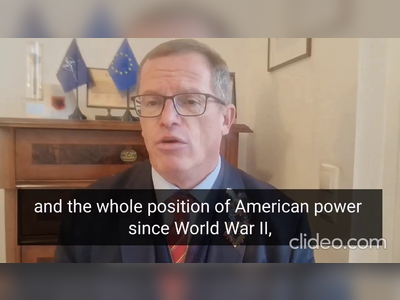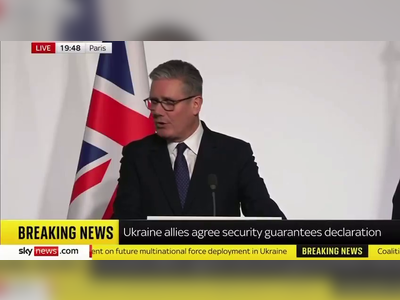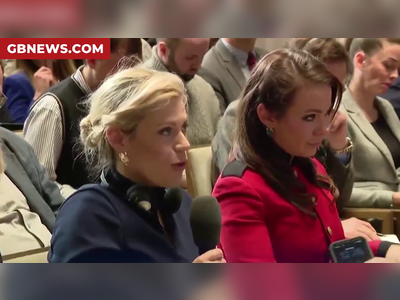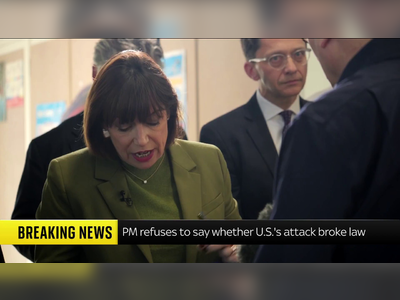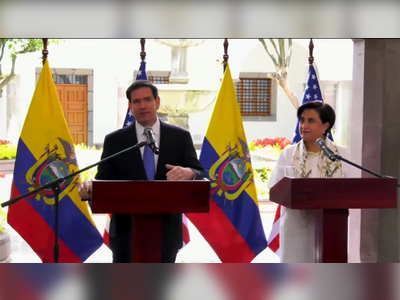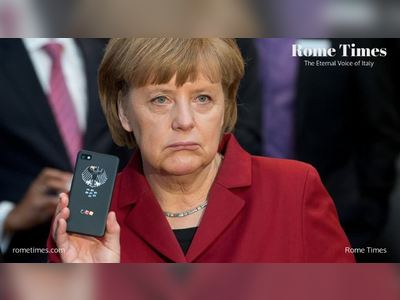
Europe's Unease with Trump's Possible Return: A Divergence from Global Sentiment
A global poll uncovers differing perspectives on the implications of a second Trump presidency, revealing notably divided opinions between traditional US allies and other global powers.
As speculation mounts about a potential second term for Donald Trump in the White House, a comprehensive poll conducted by the European Council on Foreign Relations sheds light on the global perspectives regarding his return.
The poll, encompassing 24 countries, highlights a stark contrast in sentiment between traditional US allies and emerging global powers.
The poll results indicate pronounced apprehension among European countries, with Switzerland, the UK, 11 surveyed EU nations, and South Korea expressing concern over Trump's potential return.
In contrast, non-Western nations such as China, Russia, India, and Brazil display more favorable attitudes towards the prospect.
According to the report, a majority of respondents from countries like India and Saudi Arabia perceive a Trump-led United States as a potentially peace-promoting force globally.
The findings suggest an emerging view of the United States as one among several leading powers, rather than a dominant force, with increasing receptiveness to transactional international relations.
The report emphasizes that Trump's re-election would place Europe at a critical juncture in its transatlantic relations, noting a decline in the perception of the US as an ally among Europeans.
While long-time allies remain wary, the poll uncovers optimism particularly in India, where a significant majority (82%) view Trump's second term as beneficial for global peace.
The research also points to a growing acceptance of Russia as a necessary partner in various countries despite ongoing conflicts involving Russia, such as the war in Ukraine.
India and China show an upward trend in viewing Russia as an ally, while average American opinions of Russia see slight improvement.
In assessing future geopolitical landscapes, respondents from a diverse array of countries predict the EU's ascension as a global power capable of rivalling US influence over the next decade.
Despite doubts within Europe itself, majorities in countries like India, South Africa, and Brazil believe in the EU's potential for increased global influence.
The findings of the poll suggest a world increasingly comfortable with a multi-polar order, with expectations of the US acting as a 'normal' large power rather than maintaining its longstanding exceptionalism.
These insights, as the report suggests, could prompt European leaders to reassess their geopolitical strategies, fostering domestic resilience and exploring new global partnerships to uphold their values and interests.
Overall, the poll underscores the complexity of global perspectives on US leadership and highlights the nuanced challenges faced by Europe as it navigates a rapidly evolving international arena, with or without a second Trump presidency.
The poll, encompassing 24 countries, highlights a stark contrast in sentiment between traditional US allies and emerging global powers.
The poll results indicate pronounced apprehension among European countries, with Switzerland, the UK, 11 surveyed EU nations, and South Korea expressing concern over Trump's potential return.
In contrast, non-Western nations such as China, Russia, India, and Brazil display more favorable attitudes towards the prospect.
According to the report, a majority of respondents from countries like India and Saudi Arabia perceive a Trump-led United States as a potentially peace-promoting force globally.
The findings suggest an emerging view of the United States as one among several leading powers, rather than a dominant force, with increasing receptiveness to transactional international relations.
The report emphasizes that Trump's re-election would place Europe at a critical juncture in its transatlantic relations, noting a decline in the perception of the US as an ally among Europeans.
While long-time allies remain wary, the poll uncovers optimism particularly in India, where a significant majority (82%) view Trump's second term as beneficial for global peace.
The research also points to a growing acceptance of Russia as a necessary partner in various countries despite ongoing conflicts involving Russia, such as the war in Ukraine.
India and China show an upward trend in viewing Russia as an ally, while average American opinions of Russia see slight improvement.
In assessing future geopolitical landscapes, respondents from a diverse array of countries predict the EU's ascension as a global power capable of rivalling US influence over the next decade.
Despite doubts within Europe itself, majorities in countries like India, South Africa, and Brazil believe in the EU's potential for increased global influence.
The findings of the poll suggest a world increasingly comfortable with a multi-polar order, with expectations of the US acting as a 'normal' large power rather than maintaining its longstanding exceptionalism.
These insights, as the report suggests, could prompt European leaders to reassess their geopolitical strategies, fostering domestic resilience and exploring new global partnerships to uphold their values and interests.
Overall, the poll underscores the complexity of global perspectives on US leadership and highlights the nuanced challenges faced by Europe as it navigates a rapidly evolving international arena, with or without a second Trump presidency.
Translation:
Translated by AI
AI Disclaimer: An advanced artificial intelligence (AI) system generated the content of this page on its own. This innovative technology conducts extensive research from a variety of reliable sources, performs rigorous fact-checking and verification, cleans up and balances biased or manipulated content, and presents a minimal factual summary that is just enough yet essential for you to function as an informed and educated citizen. Please keep in mind, however, that this system is an evolving technology, and as a result, the article may contain accidental inaccuracies or errors. We urge you to help us improve our site by reporting any inaccuracies you find using the "Contact Us" link at the bottom of this page. Your helpful feedback helps us improve our system and deliver more precise content. When you find an article of interest here, please look for the full and extensive coverage of this topic in traditional news sources, as they are written by professional journalists that we try to support, not replace. We appreciate your understanding and assistance.


